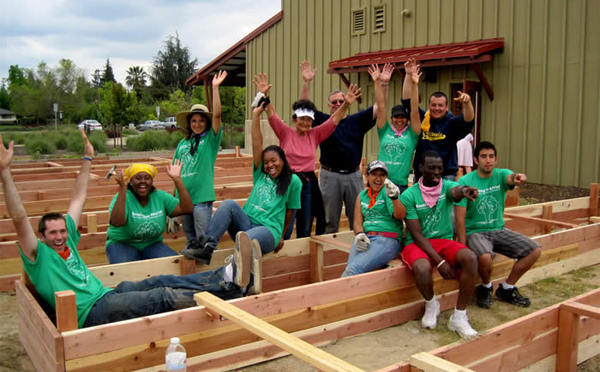For many American families, spring break may conjure images of warm beaches, road trips, and even foreign lands. But, in a stale economy, more families may need to stay closer to home to maintain their budgets.
One spring break option for high school and college students is volunteering. As they help the community, students can learn skills, make friends, and build a strong résumé. But, most importantly, students can take this time to explore their passions, says Robert Rosenthal, vice president of communications at VolunteerMatch, a free online resource that connects members with service opportunities at more than 81,000 nonprofit organizations.
“Historically, society has underestimated the passion of teens,” Rosenthal says, citing one reason as the inability of most of them to vote. But, he says, many people who go on to make a difference in the world begin fueling their interests as teenagers. In fact, many of the nonprofits on VolunteerMatch were started by students, he says. ”When you give teens tools, they can put that passion to work in a way that’s really surprising,” Rosenthal says.
[Read how community service can lead to college scholarships.]Rosenthal encourages parents to ask their teens what inspires them and how they want to change the world. Then parents and their kids can work together to address which volunteer opportunities best match these interests. While many people may immediately think of volunteering as picking up garbage or working at a soup kitchen—both valuable experiences—there’s a broader range of opportunities, and likely many that align with a student’s specific passion, Rosenthal says.
“Say a kid cares a lot about comics—there are often comic book museums near the community, and those are nonprofits that need help,” he notes.
Volunteer opportunities are out there for just about any interest, whether it’s the environment, arts, social justice for teens, or activities in their schools. Once a teen decides on a volunteering opportunity, parents need to support them, Rosenthal says—after all, it’s their passion, not just something that’s getting them off the couch. One of the best ways to support their child’s volunteering is by providing transportation to the venue if needed, Rosenthal says, or better yet, by creating new family traditions of serving together.
[Learn how parent engagement is key to student success.]And it certainly doesn’t hurt that volunteering looks good on a college application and résumé, either. In fact, it’s nearly expected, Rosenthal says. ”Every college these days and many employers are looking closely at the civic and community involvement of applicants,” he notes.
He also refers to the “evolution away from the baseline of volunteering.” On a college application, “It used to be enough for a student to have been a volunteer,” he says. But now, admissions officers want proof of concrete accomplishments through that volunteer experience, along with explanations of what the student learned and how they performed as a leader.
More companies these days are analyzing their own corporate social responsibility, Rosenthal points out, so it makes sense that they’ll look for the same passion in their applicants. He suggests that students, whether applying to college or a job, try to “show that you’re a well-rounded person and that you care about the community.” And volunteering for something that the individual is passionate about will certainly help convey that point.
“When you give teens opportunities and invite them to make a difference, more often or not, they will act on that.”



